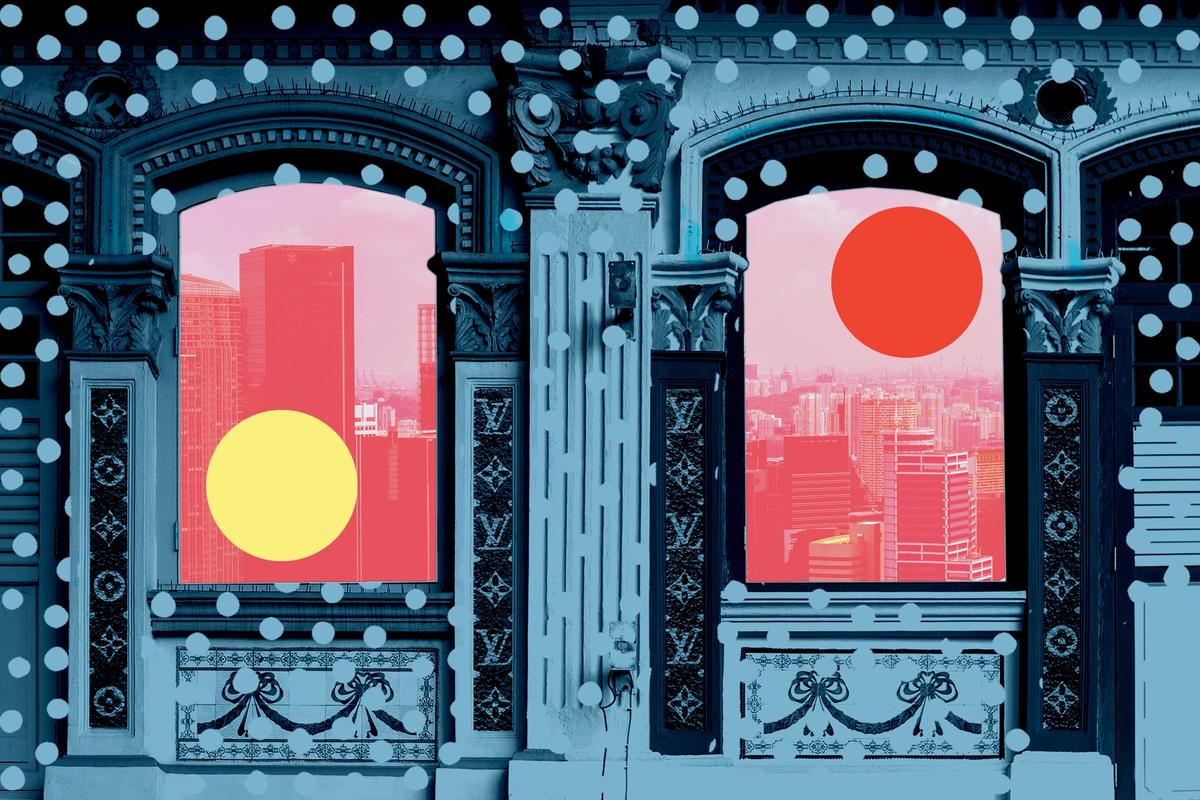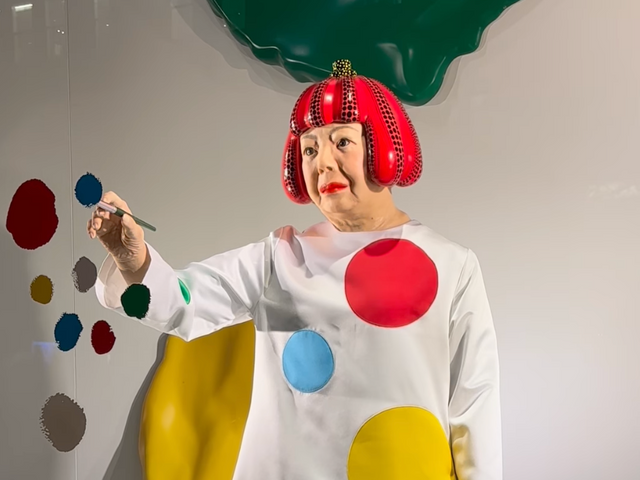I left for Singapore from Sydney this week, en route for Art SG. Most of the Australian airport is now a vast shopping mall for luxury goods, from Balenciaga to Rolex: huge temples of consumption, all brightly lit, shiny and glitzy.
But the most egregious (to my mind) display was that of Louis Vuitton (LV). Plastered across all of its windows was the latest collaboration between the luxury-goods behemoth and the 93-year-old, Japanese artist Yayoi Kusama.
A sad-looking, egg-yolk yellow mannequin was standing with a background of black spots amid brightly reflecting silver spheres. She was clad in black trousers, a white t-shirt and the inevitable handbag slung around her neck. The collaboration has been rolled out in LV shops throughout the world with similar displays in different colours, and offers 400 objects, from trainers (groan) to sunglasses. And both the material and the displays are hideous: a dizzying blanket bomb of dots, dots and more dots in red, white and silver across every conceivable support.
At Art SG, neugerriemschneider was showing a huge portrait, Yayoi Kusama (2022) by the German artist Thomas Bayrle, priced between €100,000 and €300,000, which was on hold at the time of writing. There were a couple of Infinity Net paintings available on secondary market stands: a smallish, red one at Sundaram Tagore, priced at $840,000, and two larger ones at David Zwirner. I also spotted one elegantly-dressed fair goer sporting what looked very like one of her (or rather LV’s) red and white bags.
Outside the fair, Kusama/LV posters were everywhere, with her trademark pumpkin illustrating the collaboration. Not to be outdone, Opera Gallery has also plastered the city-state with Kusama advertising for its show of secondary market works, in conjunction with the French-American sculptor Niki de Saint Phalle.
How actively involved is Kusama in any of these, erm, works? She does not seem to have made any comment herself on the collaboration. There is no doubt that the LV-Kusama hook-up has massively contributed to her worldwide fame, and while her early work was hugely impressive and ground-breaking, the latest works are just a tired reiteration of all that has gone before.
“Everyone is just waiting for her to die,” said one art dealer at Art SG, cynically. The cynicism should be directed not at this commentator—there were plenty of negative comments at the fair about the collaboration—but at the way Kusama has been turned into a global luxury-goods brand. Other artists have exploited their creativity to produce market-friendly tchotchkes (Damien Hirst springs to mind, among others) but in those cases market exploitation is an integral part of their practice. In Kusama’s case, I wonder who exactly is signing on the (polka) dotted line—and how aware she is of everything that is being sold in her name today?



